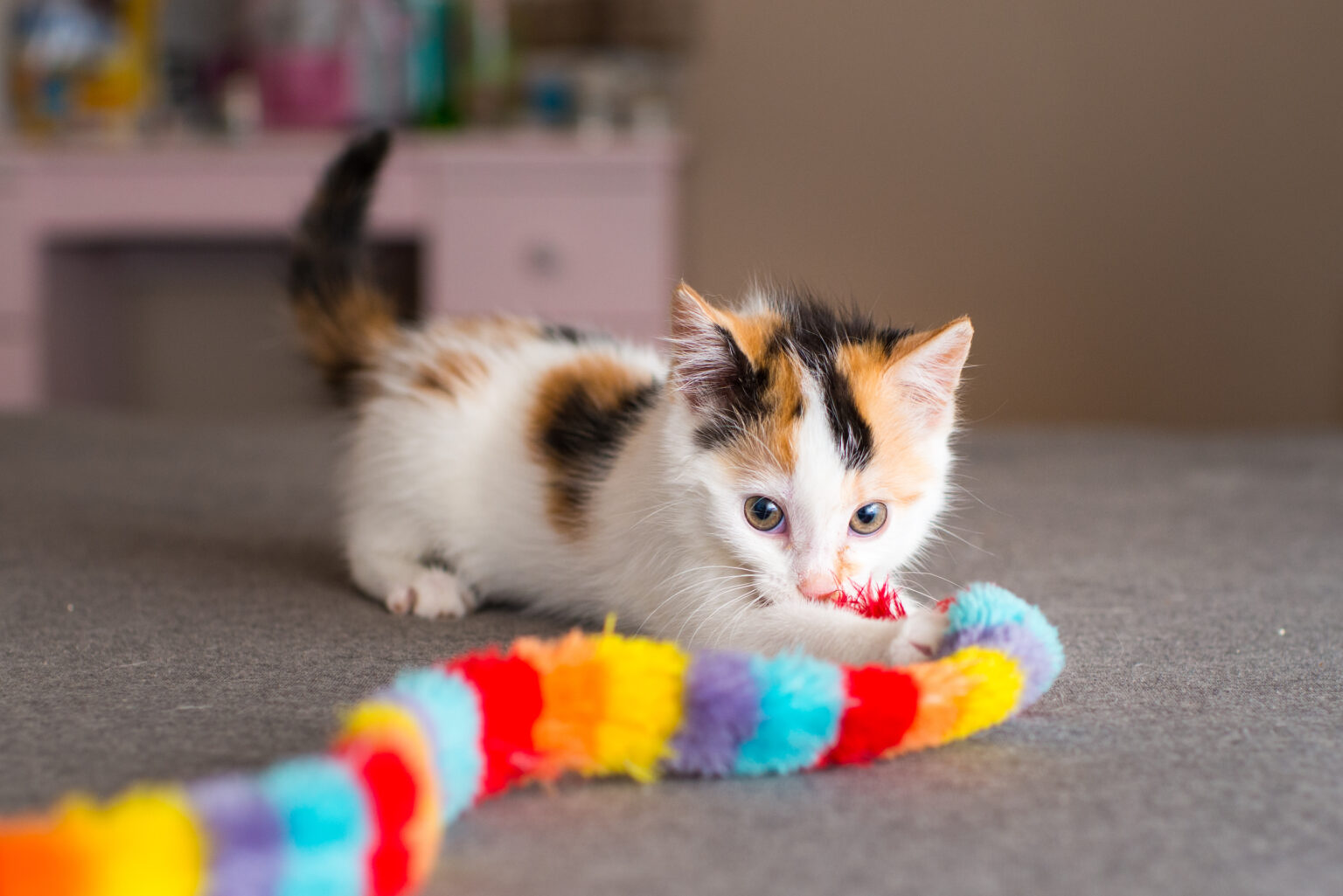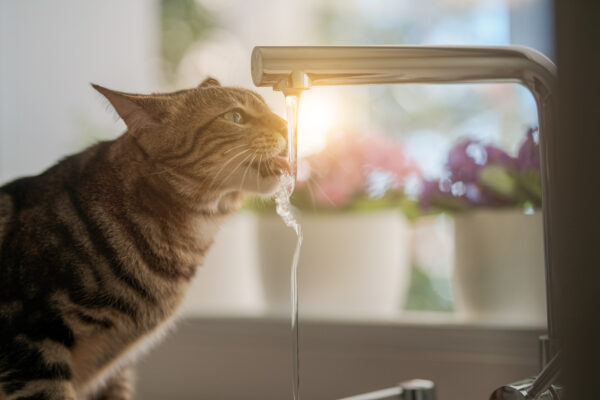Preparing for your new kitten is exciting, but it can be overwhelming knowing what essentials you need beforehand and when they’ve arrived. Whether you need some guidance on everyday accessories, or some tips on nutrition and what you’ll need for litter training, we’ve broken it down into easy, bitesize chunks with our kitten checklist.
Things to buy before they arrive
It’s better to get all of the absolute essentials a few weeks before your kitten comes home. This will give you plenty of time to bond with your new furball, but also ensure that you’re not left without something vital when they do arrive.
- Kitten food and water bowls
- A collar
- A comfortable bed
- A few cat toys
- A scratching post
- A carry case for travel
- A tray, litter and scoop
- A brush
Getting your house in order
At this point, you’ll also need to make sure your environment is ready for a new and very inquisitive houseguest.
- Provide lots of space for your kitten to explore, play and hide.
- Make sure electrical cords are out of the way.
- Secure kitchen cabinets with safety latches.
- Cover any domestic spaces your kitten might hide in, such as laundry baskets and washing machines.
- Ensure doors and drawers are shut, particularly wardrobe doors.
- Keep floors clean and free of any small items your kitten might ingest.
- Keep hot plates covered when not in use.
- Make sure there aren’t any toxic plants around, such as lilies.
Choosing who’s responsible for what
As well as shopping for all of the everyday staples, there are other things you’ll need to address and arrange before your kitten arrives.
- Pick a specific toilet training spot for their litter box in advance, somewhere quiet and accessible is best. Our resident vet has great advice on litter training your kitten.
- Your kitten will need a wellness exam with a qualified vet in its first week, finding a reliable professional now will ensure you don’t forget or struggle to get an appointment.
- Decide who will feed the kitten and change their litter so you can establish a routine immediately.
Important things to consider once they’ve arrived
- If your kitten is coming from a breeder, bringing a blanket that has a familiar scent might improve their transition as they get used to their new surroundings.
- If they haven’t already had them, arrange your kitten’s first vaccinations.
- Flea and worm treatment will be needed if the breeder or shelter has not already done so.
- Start socialising, gradually introducing new people and situations so they feel comfortable.
- If you plan to let your cat outside (not before one week after their second vaccination), take the relevant steps now to get your garden ready, including a cat flap if desired.
Appointments to book
Once they’ve settled in and you’ve got used to each other, it’s worth making sure you’ve taken care of all of the necessary vaccinations, treatments and identification your new cat needs. Some of these require your cat to be a certain age, but booking the relevant appointments will ensure you don’t forget or struggle to get a slot when the time comes.
- Insurance
- Microchipping
- Immunisations
- Worming
- Neutering
A word on nutrition
As kittens have different nutritional needs to adult cats, they should be fed kitten food. When learning how much to feed a kitten, stick to the little-and-often rule and pop a placemat under their food bowl to avoid mess. Most kittens don’t need kitten milk if they’re old enough to go to their new home (at least 8 weeks old).
Here’s a rough guide on how much to feed a kitten:
- 4-12 weeks of age = 4 meals per day
- 3-6 months of age = 3 meals per day
- Over 6 months old = need 2 meals per day
Make sure to feed your kitten the food they have already been eating for a few weeks after you bring them home. A sudden change of diet combined with the stress of adapting to a new home can cause stomach upsets and diarrhoea. If you want to change their diet, do so over a couple of weeks by mixing the new kitten food with their existing diet. As with all animals, kittens need a bowl full of fresh drinking water available at all times. Amongst the human foods cats can’t eat, milk is a definite no-no. Remember, giving your kitten cow milk can cause diarrhoea.



